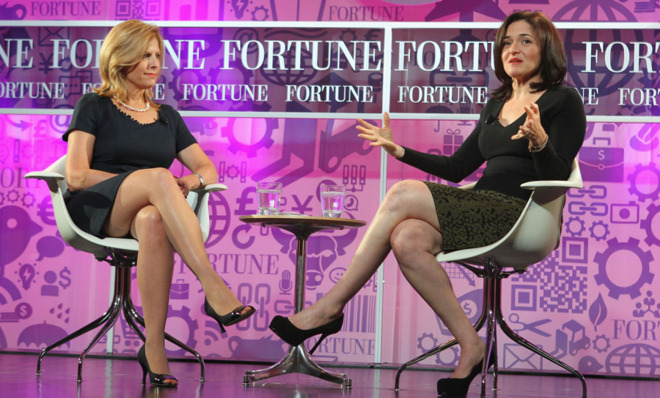Feminism has a 1 percent problem
When a seat at the table costs $500 a head


A free daily email with the biggest news stories of the day – and the best features from TheWeek.com
You are now subscribed
Your newsletter sign-up was successful
There's an upsurge of women-to-women networking going on right now, with conference halls around the country filling up with ladies ready to break the glass ceiling. This should be good news, except there is one problem: You probably can't go.
For starters, tickets to these events don't come cheap.
A three-day pass to Tina Brown's recent Women in the World summit will set you back $500 — $300 if you are willing to sit in the nosebleeds. Want to learn work/life balance with Arianna Huffington and Mika Brzezinski? That'll be another $299 (and that's just for the standard package). The 92nd Street Y's S.H.E. summit which will help you get "everything you want in work and life!" will cost you another $249.
The Week
Escape your echo chamber. Get the facts behind the news, plus analysis from multiple perspectives.

Sign up for The Week's Free Newsletters
From our morning news briefing to a weekly Good News Newsletter, get the best of The Week delivered directly to your inbox.
From our morning news briefing to a weekly Good News Newsletter, get the best of The Week delivered directly to your inbox.
And then there are the ones all the money in the world can't get you into. (I'm joking: all the money would probably do the trick.) The Makers conference, a weekend filled with advice from the likes of Sheryl Sandberg, Gloria Steinem, and Martha Stewart, is invite-only, as is the Forbes Women's Summit, "Power Redefined."
In The New York Times on Sunday, Jessica Bennett wrote about the rise of conference feminism, which has replaced grassroots gatherings with "commercial enterprises: star-studded events with corporate sponsors like Toyota and Walmart." Just envision Jennifer Aniston interviewing Gloria Steinem at a conference you can't go to, sponsored by American Express and AOL.
These conferences reflect a new and increasingly dominant wave of the women's movement, one that has trained its top-shelf gimlet-eye on getting more women in positions of power. This corporate feminism, which already has a manifesto in Sheryl Sandberg's best-selling book Lean In, is important and not without an audience. The gender gap is still gaping at the top, with women making up less than 5 percent of CEOs at Fortune 500 companies, and not doing much better in other arenas like media, film, and politics.
Still, there are a whole lot of women out there, the bulk of us I'd say, who don't benefit much from these exclusive retreats. While the running in heels-types are busy networking, planning power lunches, and discussing which spa is best for when being alpha becomes too much, we are commuting to work, changing diapers, and wondering if we will ever retire. What, if anything, would an elementary school teacher from Tampa, or heck, this freelance writer in Brooklyn gain from attending one of these conferences? And what of the many women who don't identify themselves as feminists in the first place? How are these conferences reaching them by presenting the women's movement as a highly exclusive club?
A free daily email with the biggest news stories of the day – and the best features from TheWeek.com
The fact is, there is something inherently unwise, and kind of 1-percent, about relying on such a small group of women to make the big changes that benefit us all. With women making up 60 percent of the minimum-wage workforce and 73 percent of tipped workers, there are more urgent needs than better female representation on the board. We need laws that ensure we are paid fairly and won’t go broke if we happen to fall sick or have a family — and ones that aren't subject to a change of management. No female friendly CEO can have the staying power of a law.
Fortunately, there are other women’s organizations out there pushing for this kind of change. MomsRising, for example, takes a grassroots approach to organizing for improved parental leave policies, flexible workplaces, health care, and universal early education. It might not have the star power of Jennifer Aniston, sponsors like Vitamin water, or free yoga sessions, but it does have over one million working mothers fighting for what they really need.
Elissa Strauss writes about the intersection of gender and culture for TheWeek.com. She also writes regularly for Elle.com and the Jewish Daily Forward, where she is a weekly columnist.
